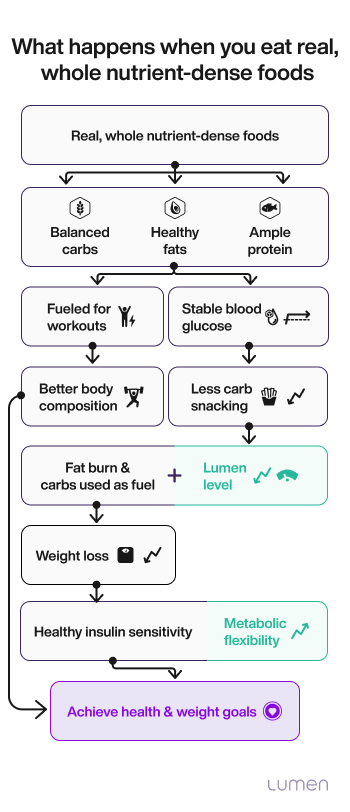About half of men and 70% of women in the US have metabolism issues due to their diet. This fact shows why we greatly need nutrition for metabolic health. With fast food being a common choice, switching to healthy meals for weight loss and better metabolism can look tough. Yet, our nutritional guide for metabolism aims to make it easier. Using our healthy eating tips and adapting your diet for better metabolism will turn food into useful energy. This keeps you feeling energized and helps in managing weight.
Learning to feed your body right is a wise choice for your health and energy in the future. This guide is here to lead you, teaching you what to eat and what to avoid for a better metabolism. As you read on, you’ll learn how to make eating choices that keep you energized.

Key Takeaways
- Identify critical dietary patterns affecting metabolic health in the United States.
- Discover actionable healthy eating tips that can revolutionize your energy levels.
- Learn to curate healthy meals for weight loss without compromising enjoyment.
- Gain insights into the integral relationship between nutrition for metabolic health and overall well-being.
- Utilize this nutritional guide for metabolism to foster a powerful, energy-efficient body.
- Experts curated advice on creating a diet for better metabolism, tailored to your individual needs.
Understanding Metabolism and Its Importance for Health
Metabolism is key to long-term health and managing weight. It’s often talked about but not well understood. Understanding metabolism’s role in energy levels and what affects it is crucial for a healthy lifestyle. Could the diet you follow or the foods you eat for metabolism help you reach your best health?
Defining Metabolism and Its Role in Energy Production
Metabolism is our body’s biochemical engine, turning food into energy. It’s made up of complex processes that ensure we have energy for all activities. Knowing the basics of metabolism helps us choose the right foods for energy, supporting this important function.
Factors Affecting Metabolism: Age, Genetics, and Lifestyle
Your metabolic rate is influenced by age, genetics, and how you live. As we get older, our metabolism slows, calling for dietary changes. While genetics set up our metabolism’s efficiency, our lifestyle choices like exercise, sleep, and diet greatly shape our metabolic rates.
The Impact of Metabolism on Weight Management and Overall Health
Managing weight involves balancing calories eaten with calories burned, with metabolism playing a key role. Metabolism-boosting foods can impact this balance and overall health. Knowing how metabolism affects health can lead us to better feed and energize our bodies.
The Relationship Between Diet and Metabolic Rate
It’s important to know how our food choices impact our metabolic rate. This affects our energy levels and health. The right foods can make our bodies work better. With healthy eating tips, we can boost our metabolism. This means better health and more energy.
How Different Macronutrients Influence Metabolism
Macronutrients, like carbs, proteins, and fats, have unique effects on our metabolism. Carbs give us quick energy, while proteins help repair tissues. Fats offer sustained energy. The right diet for better metabolism considers how each nutrient works. This helps keep our metabolic health strong.
| Nutrient Type | Metabolic Impact | Recommended Foods |
|---|---|---|
| Carbohydrates | Quick energy source; spike insulin levels. | Whole grains, vegetables, legumes |
| Proteins | Higher thermic effect; muscle repair and growth. | Chicken breast, tofu, lentils |
| Fats | Dense energy source; slower digestion. | Avocados, nuts, olive oil |
Thermic Effect of Food and Its Contribution to Energy Expenditure
The thermic effect of food refers to how much energy our bodies use to digest food. Foods high in protein can boost this effect. This increases how much energy we burn and can speed up our metabolism. This idea is key when picking what to eat for energy. It helps us burn more calories all day.
Balancing Energy Intake with Energy Output for Metabolic Health
To improve our metabolic rate, we need to balance energy in with energy out. It’s not just about how much we eat, but what we eat. Adding healthy eating tips to our daily life can ensure our diet supports our metabolic health. This way, we move towards better nutrition for metabolic health.
Top Metabolism Boosting Foods to Incorporate in Your Diet
Adding the right foods to your diet can boost your energy and improve metabolic health. A good diet helps your body turn food into energy more efficiently. You’ll feel more alive and energized all day. Here are some of the best foods for boosting metabolism.
Foods Rich in Omega-3 Fatty Acids: Fish and Legumes
Omega-3 fatty acids are important for a healthy metabolism and fighting inflammation. Fatty fish like salmon are great for omega-3s. Some legumes are also good sources, providing fiber that supports digestion.
Protein-Packed Choices: Lean Meats, Low-Fat Dairy, and Eggs
Protein is key in any metabolic health plan because it increases metabolism when digesting. Lean meats and low-fat dairy give your body essential amino acids. These help with muscle repair and growth, keeping your metabolism active.
Fiber-Filled Foods: Fruits, Vegetables, and Whole Grains
Foods high in fiber, including fruits, veggies, and whole grains, are crucial for boosting metabolism. They regulate your digestive system and help you stay full, managing weight and keeping energy levels steady.
| Food Category | Benefits | Examples |
|---|---|---|
| Omega-3 Fatty Acids | Reduces inflammation, supports brain health | Salmon, Flaxseeds, Walnuts |
| Protein | Increases metabolic rate, aids muscle repair | Chicken Breast, Greek Yogurt, Cottage Cheese |
| Fiber | Enhances satiety, aids in digestion | Apples, Broccoli, Quinoa |
Knowing which foods boost energy and adding them to your diet can improve your health and lifestyle. Continue to learn about healthy eating and metabolism-boosting foods. Include them in your meals for lasting health benefits.
Nutritional Strategies to Enhance Metabolic Efficiency
It’s not only about what you eat, but also when and how. A nutritional guide for a metabolism that works well suggests eating a variety of foods. This means getting nutrients from a balanced diet. Tips for healthy eating often recommend a good mix of both macro and micronutrients.
This mix fuels the body’s metabolic activities, like cogs in a machine.
The timing and frequency of eating are crucial too. A common myth is that eating less often boosts metabolism. However, eating regularly can stabilize blood sugar and control hunger. This may help avoid overeating and support a healthy metabolism.
Want to better your metabolic efficiency? Here are some diet tips:
- Eat more high-quality protein to help muscles repair and grow. This can raise your metabolism when resting.
- Add fiber-rich foods to stay full longer and boost gut health.
- Include healthy fats from avocados and nuts for hormone production and feeling satisfied.
Here’s a table that shows crucial meal parts and their benefits:
| Meal Component | Function | Food Examples |
|---|---|---|
| Protein | Muscle repair, hormone production | Chicken breast, tofu, Greek yogurt |
| Fiber | Satiety, gut health | Apples, lentils, almonds |
| Healthy Fats | Hormone production, satiety | Avocado, chia seeds, olive oil |
Improve your metabolic health with smart timing:
Eating protein in the morning can start your metabolism and keep you energized all day.
Plan your meals and nutrients wisely to boost diet efficiency. Listening to your body’s signals is key to managing how much and how often you eat.
A customized diet plan for metabolic health must fit your personal health needs and lifestyle. See these tips as flexible guidelines for lasting health benefits, not rigid rules.

Healthy Eating Enhanced Metabolism
Healthy eating tips can majorly boost your metabolism. It’s not all about the food but also your diet structure. A diet plan for metabolic health makes sure every meal boosts energy and health.
Designing a Balanced Diet for Optimal Metabolism
A metabolic health diet includes mixed nutrients. A nutritional guide for metabolism suggests complex carbs, proteins, fats, and various fruits and vegetables. Balance your portions for energy and weight control.
- Carbohydrates: Whole grains, such as quinoa and brown rice, offer sustained energy without the blood sugar spikes.
- Proteins: Incorporate lean meats, legumes, and tofu to keep muscle tissue in repair and metabolism steady.
- Fats: Avocados, nuts, and seeds provide essential fatty acids vital for hormone function and satiety.
- Fruits and Vegetables: A colorful array loads your diet with antioxidants and fiber, enhancing digestion and metabolic rate.
Meal Timing and Frequency: Impacts on Metabolic Health
Eating regularly is as crucial as the diet itself. Right timing boosts metabolism. Eating smaller, nutritious meals throughout the day maintains energy and curbs overeating.
A regular eating schedule supports a healthy metabolism, ensuring stable energy levels.
By sticking to these healthy eating practices, you’ll increase your metabolism and live more energetically. These strategies help your body to perform optimally.
Foods that Increase Metabolic Rate: Myth vs. Reality
Many people look for foods that can boost their metabolism. It’s important to eat healthily and have a good diet plan for your metabolism. But, there are many products out there that claim to make your metabolism faster. To stay healthy, it’s key to know what’s true and what’s just a myth.

The Truth About ‘Metabolism-Boosting’ Supplements
You’ll find supplements claiming to speed up your metabolism. But, a lot of these claims aren’t backed up by science. Before you think about supplements, it’s best to talk to a doctor. Try to eat natural foods that experts recommend for boosting your metabolism.
Debunking Common Metabolism Myths
It’s important to clear up wrong information. To help you plan your diet, let’s look at some myths and the real facts:
| Myth | Reality |
|---|---|
| Spicy foods can significantly increase metabolism. | While spices may have a small temporary effect, they don’t lead to substantial calorie burn. |
| Fasting jump-starts your metabolism. | In fact, eating regular meals is more likely to stabilize metabolic rates. |
| Drinking water boosts metabolism in a major way. | Hydration supports metabolic function, but the metabolism boost is relatively modest. |
| Eating certain fruits can cause fat to burn quicker. | No fruit or food directly causes fat burn; a calorie deficit is required for weight loss. |
To improve your metabolic health, focus on a balanced diet, exercise, and a healthy lifestyle. Always look for reliable information. And if you’re unsure, talking to a nutritionist can help plan the right diet for you.
Creating a Personalized Diet Plan for Metabolic Health
Starting your journey to better metabolic health is both exciting and tough. It’s key to make a diet plan for metabolic health that fits just you. This tailored plan will match your body’s needs, your life’s likes, and your goals for health. Here’s how to find what you need to eat, set real goals, and eat right to boost your metabolism.
Identifying Your Unique Nutritional Needs
To make a nutritional guide for metabolism that suits you, knowing your health, how active you are, and any health issues is key. You might need to work with health pros for advice and tests. Knowing what your body lacks or gets too much of lets you fix it through your diet.
Setting Achieachable Dietary Goals to Support Metabolism
Understanding your nutritional needs lets you set goals. Maybe it’s eating more veggies or cutting down on junk food. Your goals should help balance your metabolism. Small, steady changes work best, so focus on getting better slowly, not all at once.
Monitoring Progress and Making Adjustments as Needed
Your diet should change as your life does. Keep an eye on your health and how you feel to see your diet’s effects. Use tips for eating well to adjust what and how much you eat. This helps your metabolism. If you hit a bump, see it as a chance to learn and get better.
Diet plan for metabolic health is a never-ending process that needs self-exam and being open to changes. Staying devoted and having a good plan can unlock personalized nutrition. This powers your metabolism and helps you succeed.
Integrating Physical Activity to Complement Healthy Eating
Starting a journey to be healthier isn’t just about eating right. It’s also about adding exercise to your routine. Combining a good diet plan for metabolic health with regular physical activity is key. This mix benefits your body in many ways, helping you stay fit and healthy. By doing both, you help your metabolism and find a lasting way to keep well.
Exercise speeds up your metabolism. It works even better when paired with nutrition for metabolic health. You’ll use energy better and manage your weight easier. You don’t have to do intense workouts; even light exercise is good for your health. Just keep moving regularly to make a big difference.
- Aerobic Exercise: Boosts heart and lung health, improves oxygen circulation, and builds stamina. Great options are walking, jogging, biking, or swimming.
- Strength Training: Increases muscle, which burns more calories even when you’re not active. Try lifting weights or exercises using your body weight.
- Flexibility and Balance: Helps muscles relax and prevents getting hurt. Yoga and pilates are perfect for flexibility, and tai chi is good for balance.
Today, we understand more about how important it is to combine a smart diet plan for metabolic health with regular exercise. Whether you take a short walk daily or join a fitness class, small steps can make a big impact on your health.
Key Nutritional Tips for Sustained Energy Throughout the Day
To keep energy high and metabolism strong, knowing about nutrition is key. Knowing what foods give you energy is important. This lets you fuel your body right, so you can stay active all day.
Understanding the Role of Carbohydrates, Protein, and Fats
Carbs are your main energy source. Choose complex carbs like whole grains for slow energy release. This helps avoid energy spikes and drops. Proteins repair tissues and provide lasting energy. Healthy fats from avocados, nuts, and olive oil are important for energy storage and body functions.
| Energy Source | Examples | Benefits |
|---|---|---|
| Complex Carbohydrates | Whole grains, legumes, vegetables | Sustained energy release, digestive health |
| Protein | Lean meats, dairy, legumes, tofu | Supports muscle repair, long-lasting energy |
| Healthy Fats | Avocados, nuts, seeds, olive oil | Energy storage, supports cellular function |
Eating a mix of these nutrients in every meal is key for good nutrition and metabolism. They each have special qualities that keep energy levels steady.
Hydration and Its Effect on Metabolic Processes
Staying hydrated is crucial for energy. Water helps with many body processes, like moving nutrients and regulating temperature. Not drinking enough water can make you feel tired and less sharp. Drinking water or eating water-rich foods is a great tip for more energy.
To keep energy up and support your metabolism, eat a balanced diet with complex carbs, proteins, and healthy fats. Also, drink plenty of water throughout the day. By following these tips, you’ll feel more awake and healthy overall.
Conclusion
We’re concluding our detailed guide on wholesome eating habits, key nutrition, and effective diet plans for metabolic health. Eating a variety of nutrients not only feeds the body but also improves metabolic functions. The right mix of nutrients, fiber, and omega-3s, at the correct times and amounts, boosts our metabolism.
Customizing your diet to fit your needs is vital for enhancing metabolism. By understanding what your body specifically needs, you can create a diet plan that matches your health goals. It’s crucial to balance the food you eat with the energy you use and to include foods backed by science to help your metabolism.
This guide has shared tips, from busting myths to encouraging exercise, to help you build better eating habits. These steps lead to better health and more energy. By applying these insights every day, you’ll improve your metabolic health and enjoy a better life.
FAQ
What is metabolism and why is it important for health?
Metabolism is how your body turns food into energy. It’s key for health because it powers everything from moving to thinking.
What factors can influence metabolism?
Many things affect metabolism, like age, genes, and how you live. Getting older can slow it down. Your genes shape how fast you burn calories. Exercising and what you eat also play big roles.
How does metabolism affect weight management and overall health?
A good metabolism helps with weight control. If it’s fast, you burn more calories which might help you lose or keep off weight. It also keeps your organs working well, which is great for your health.
How do different macronutrients affect metabolism?
Carbs, proteins, and fats affect your metabolism differently. Carbs give you quick energy. Proteins help burn more calories and build muscle. Healthy fats give long-lasting energy and help your metabolism too.
What is the thermic effect of food?
This is about how much energy your body uses to digest food. Foods high in protein make your body work harder to break them down, which uses more energy.
What are some metabolism-boosting foods?
Foods high in omega-3s, like fish, can help your metabolism. So can protein-rich foods like lean meats and dairy. Fiber-filled fruits, veggies, and whole grains are also good for boosting your metabolic rate.
How can I enhance my metabolic efficiency?
To better your metabolism, eat a balanced diet with lots of nutrients. Eating at the right times and picking healthy foods are key. Add regular exercise to your routine to help even more.
Are there any foods that can actually increase metabolic rate?
No single food will drastically change your metabolism. Instead, focus on a balanced diet and a healthy lifestyle. These have a bigger impact on your metabolism.
How can I create a personalized diet plan for metabolic health?
Start with understanding your nutritional needs. Then, set realistic goals that help your metabolism. Keep track of your progress and tweak your plan as needed to fit your needs and goals.
How does physical activity complement healthy eating for metabolic health?
Exercise boosts your metabolism, helps burn calories, and supports metabolic health. It builds muscle which raises how much energy you use, helping keep your metabolism in good shape.
What are some key nutritional tips for sustained energy throughout the day?
Eating carbs, proteins, and fats in balance gives you energy. They each play a part in keeping your metabolism going. Drinking lots of water is also crucial for a healthy metabolism.

